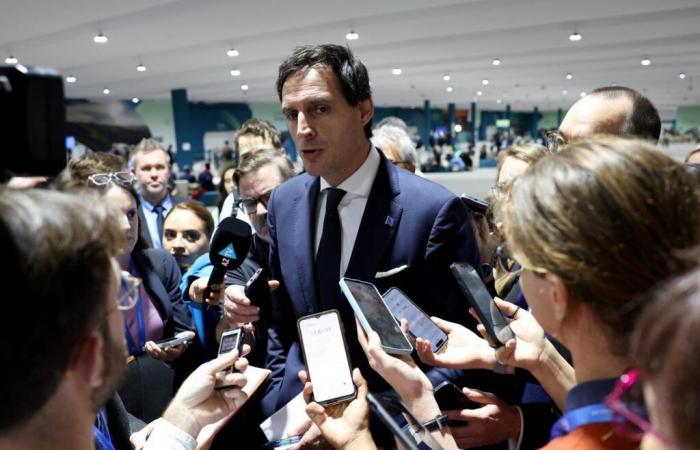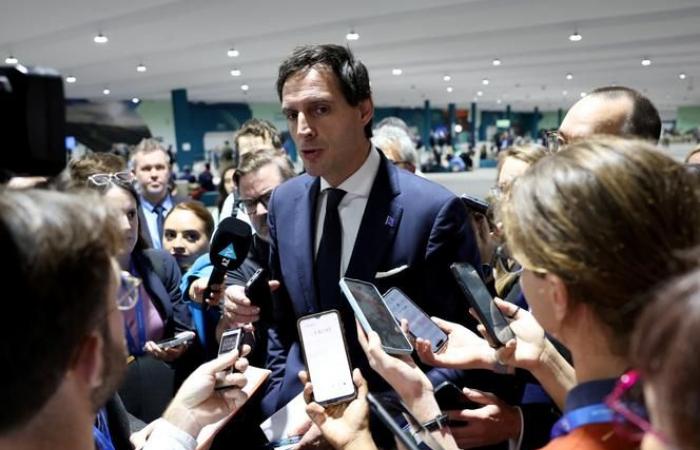The final act of the COP theater has begun. “Unacceptable”snapped Woepke Hoekstra, in front of a forest of microphones, at the end of a press conference, Thursday, November 21. The European Commissioner in charge of climate action had just consulted a new version of the crucial text of this 29e Conference of the Parties on Climate (COP29), the New Collective Quantified Goal (NCQG), that is to say the new financing objective to be provided to developing countries to help them succeed in their climate transition. “If you look at the aspects that concern mitigation [des émissions de gaz à effet de serre (GES)], it does not reflect what we ourselves promised. We cannot accept that we act as if the previous COP had not existed. (…) This text goes in an opposite direction. »
Read also | Article reserved for our subscribers At COP29, happenings, networking and pressure: how NGOs make civil society heard in the great UN machine
Read later
Suddenly, the memory of COP28, in Dubai, resurfaced in the last sprint of the negotiations. In 2023, the parties managed to agree to include the imperative of a “transition away from fossil fuels”a first in the history of climate diplomacy.
A year later, faced with demands from developing countries who hope for between 500 billion and 1,300 billion dollars (between 476 billion and 1,240 billion euros) in aid, precisely to ensure this energy transition, officials from developed countries have still not announced any figures. So they played another card. During the plenary session on Thursday, the most ambitious rich countries from a climate point of view, notably the Europeans, all repeated that there could not be an agreement if the words chosen to evoke the reduction in emissions were not reinforced. “Someone said in this COP that fossils were a gift from God, well they better stay in the ground”quipped Lars Aagaard, Denmark’s climate minister, in reference to the words of Azerbaijani President Ilham Aliyev.
“Then pay for mitigation!” »
The European Union (EU), which has always belonged to the strongest alliances on mitigation, will play this card for as long as possible. Except that this year, the game promises to be much closer. The theme having changed, the alliances have evolved. In Dubai, the Europeans, the Canadians and the British could count on the countries most vulnerable to climate change, therefore many from the African group, South America, the island states, to push the Gulf countries, India and China to accept a text on an exit from fossil fuels.
You have 59.31% of this article left to read. The rest is reserved for subscribers.







